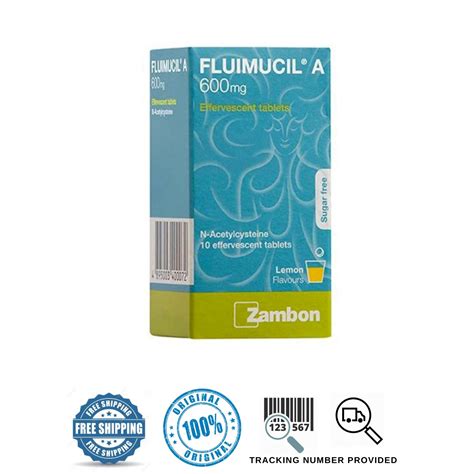Introduction
Green tea, a beverage steeped in tradition and revered for its health benefits, has gained widespread popularity globally. However, with its potential for caffeine and other compounds, it’s essential to understand the optimal daily intake for this healthful beverage. This comprehensive guide delves into the recommended consumption levels of green tea, exploring the potential health implications of excessive intake.

Recommended Daily Intake
According to the European Food Safety Authority (EFSA), the recommended daily intake of caffeine for adults is 400mg. Green tea typically contains around 20-45mg of caffeine per 8oz cup, varying based on brewing method and tea type. Therefore, the suggested daily intake for green tea ranges from 8-20 cups to stay within the recommended caffeine guideline.
Health Benefits of Green Tea
Green tea offers a plethora of health benefits due to its rich antioxidant content. Some notable advantages include:
- Reduced risk of chronic diseases: Antioxidants in green tea have been linked to a lower risk of chronic diseases, such as heart disease, cancer, and Alzheimer’s disease.
- Improved cardiovascular health: Green tea may reduce blood pressure, improve cholesterol levels, and enhance blood flow.
- Boosted metabolism: Caffeine in green tea can temporarily accelerate metabolism, potentially aiding weight loss efforts.
- Cognitive enhancement: Antioxidants in green tea may support cognitive function and protect against age-related mental decline.
Potential Concerns with Excessive Intake
While green tea consumption is generally safe, excessive intake can lead to certain health issues:
- Caffeine overdose: Consuming large amounts of green tea can result in caffeine overdose, leading to symptoms such as anxiety, insomnia, and heart palpitations.
- Iron absorption interference: Tannins in green tea can bind to iron, reducing its absorption. Excessive consumption may lead to iron deficiency in susceptible individuals.
- Medication interactions: Green tea may interact with certain medications, such as blood thinners and antidepressants. It’s essential to consult a healthcare professional before combining green tea with medications.
Tips for Optimal Consumption
To enjoy the health benefits of green tea while minimizing potential risks, consider the following tips:
- Gradual introduction: Gradually increase your green tea intake to avoid sudden caffeine exposure, which can cause discomfort.
- Hydration: Drink plenty of water alongside green tea, as caffeine may have a diuretic effect.
- Avoid before bedtime: Caffeine in green tea may disrupt sleep if consumed too close to bedtime.
- Consider individual tolerance: Some individuals may be more sensitive to caffeine than others. Adjust your intake as needed.
- Monitor caffeine intake: Keep track of your daily caffeine intake from all sources, including green tea, coffee, and other beverages.
Future Innovations
Advancements in green tea research and technology are creating innovative ways to harness its health benefits:
- Microencapsulation: Encapsulating green tea extract in microscopic particles enhances absorption, bioavailability, and controlled release.
- Nanotechnology: Nanotechnology applications in green tea production allow for targeted delivery and enhanced antioxidant protection.
- Personalized consumption: Tailoring green tea consumption recommendations based on genetics, lifestyle, and health status can optimize its benefits for each individual.
Case Study: Green Tea and Weight Loss
A study published in the Journal of Nutrition and Metabolism investigated the effects of green tea consumption on weight loss over 12 weeks. Participants who consumed 5 cups of green tea per day experienced significant reductions in body weight, body fat, and waist circumference compared to those in a placebo group.
Conclusion
Green tea is a healthful beverage with potential health benefits when consumed in moderation. The recommended daily intake ranges from 8-20 cups, providing a safe range to enjoy its benefits while avoiding potential adverse effects. By following the tips provided, you can optimize your green tea consumption and maximize its health-promoting properties. As research continues to uncover new applications and benefits of green tea, its significance in promoting overall well-being is set to continue.
Table 1: Health Benefits of Green Tea
| Benefit | Key Compounds |
|---|---|
| Reduced risk of chronic diseases | Antioxidants |
| Improved cardiovascular health | Catechins, flavonols |
| Boosted metabolism | Caffeine |
| Cognitive enhancement | Amino acids (e.g., L-theanine) |
Table 2: Potential Concerns with Excessive Green Tea Intake
| Concern | Symptoms |
|---|---|
| Caffeine overdose | Anxiety, insomnia, heart palpitations |
| Iron absorption interference | Iron deficiency anemia |
| Medication interactions | Reduced medication effectiveness or increased side effects |
Table 3: Tips for Optimal Green Tea Consumption
| Tip | Rationale |
|---|---|
| Gradual introduction | Avoid sudden caffeine exposure |
| Hydration | Caffeine has a diuretic effect |
| Avoid before bedtime | Caffeine may disrupt sleep |
| Consider individual tolerance | Adjust intake as needed |
| Monitor caffeine intake | Keep track of total caffeine consumption |
Table 4: Future Innovations in Green Tea Technology
| Innovation | Benefits |
|---|---|
| Microencapsulation | Enhanced absorption, bioavailability, controlled release |
| Nanotechnology | Targeted delivery, enhanced antioxidant protection |
| Personalized consumption | Tailored recommendations based on individual characteristics |
















